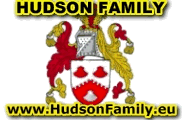England & Wales 1841-1891 Census
Census 1861
In the course of copying out their returns, the census enumerators were given permission to use certain abbreviations for occupations. This practice was most extensive in 1841, and gradually diminished over the years after.
By 1871 the only abbreviation mentioned was 'Ag. Lab.' for agricultural labourer.
In 1881 a more general instruction was given - such contractions may be used as 'ag. lab.' for agricultural labourer, but care must be taken that the contractions used are such as will be readily understood.
Ag. Lab. ~ Agricultural Labourer (1841-81 Census)
Ap. ~ Apprentice (1841-61 Census)
Army ~ Members of HM land forces of whatever rank (1841 Census)
Cl. ~ Clerk (1841-61 Census) F.S. ~ Female Servant (1841 Census)
H.P. ~ Members of HM armed forces on half-pay (1841 Census)
Ind. ~ Independent - people living on their own means (1841 Census)
J. ~ Journeyman (1841 Census)
M. ~ Manufacturer (1841 Census)
m. ~ Maker - as in 'Shoe m.' (1841 Census)
M.S. ~ Male Servant (1841 Census)
Navy ~ Members of HM naval forces, including marines, of whatever rank (1841 Census)
P. ~ Pensioner in HM armed forces (1841 Census)
Rail. Lab. ~ Railway Labourer (1841 Census)
Serv. ~ Servant (1841 Census)
Sh. ~ Shopman (1841 Census)
Definition Of Terms Used On Census Returns
Annuitant ~ The term annuitant could describe someone on an annual allowance as well as someone receiving annual income from an investment. Often however, it was also used for institutionalized pensioners.
Boarder ~ a person who shares the dinner table with the family.
Lodger ~ a person who has separate accomodation to the householder.
Lunatic ~ a mentally ill person with periods of lucidity.
Imbecile ~ persons who have fallen in later life into a state of chronic dementia.
Idiot ~ persons who suffer from congenital mental deficiency.
Scholar ~ from 1861 onwards a child was described as a scholar if he/she was over 5 and receiving daily schooling or regular tuition at home. There was no definition of the latter. In 1871 the census officials in London broke the confidentiality pledge and divulged the names of all children 3-13 and their parents (with addresses) to the London School Board to help enforce compulsory education.
Dressmaker ~ the occupation of 'dressmaker' was commonly given by prostitutes. (NOT all)
In-Law ~ terms such as Brother and Brother-in-Law were used interchangeably and somewhat unreliably. Likewise Sister and Sister-in-Law.
|





